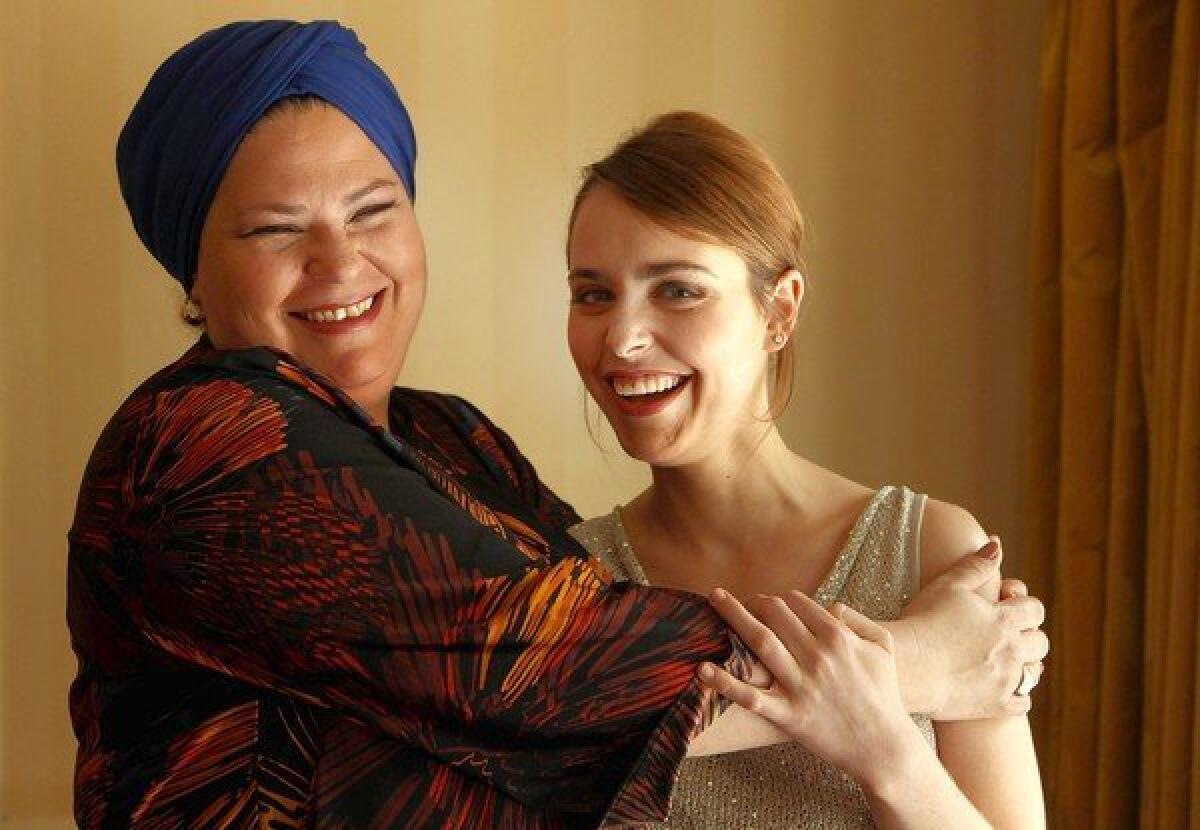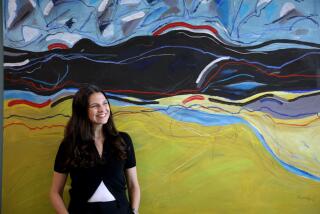Rama Burshtein’s Orthodox tale ‘Fill the Void’ is from the inside

Israeli writer-director Rama Burshtein felt a lot of pressure graduating from the Sam Spiegel Film and Television School in Jerusalem two decades ago because everyone expected great things from her.
“They said, ‘She is a promise,”’ recalled Burshtein, who was born in New York City but moved to Tel Aviv with her family when she was 1. “I didn’t like the weight of that. I knew I needed a break anyway after school to see if this is what I wanted to do.”
But she ended up taking a very long break. Burshtein went on a “spiritual journey” after graduation and became deeply religious. Her husband, whom she married at 27, had grown up in the secular Jewish community before also becoming member of the Haredi, or ultra-Orthodox community, in Tel Aviv.
PHOTOS: Celebrity portraits by The Times
“I had four kids and they are very squeezed together,” said Burshtein, 45. “It was a full-time job. I felt I didn’t have anything to say.”
That is until a few years ago, when she decided to tell a “little tale” about a young Haredi woman who is pressured by her family to marry her late sister’s husband. The romantic drama, “Fill the Void,” which opened Friday in Los Angeles, stars Hadas Yaron, as 18-year-old Shira, the younger daughter from a wealthy family, who is thrilled about her upcoming arranged marriage.
But then her older sister dies in childbirth. Not only is the family grieving over her loss but it also receives more bad news — the widower Yochay (Yiftach Klein) is planning on marrying a woman in Belgium and taking his infant son with him. Shira’s mother is so distressed that she also may be her losing her grandson, she proposes Shira marry Yochay instead of her intended.
“Fill the Void,” which was Israel’s submission for the foreign language film Oscar, won seven awards at the Awards of the Israeli Film Academy, including best film, actress, director and screenplay. Yaron also won lead actress last year at the Venice Film Festival.
Though there have been other films dealing with Orthodox life, they have all been told by secular directors and have revolved around crisis of faith. “Fill the Void” is the first film about the community from an Orthodox filmmaker.
Over lunch recently at a kosher restaurant in Beverly Hills, Burshtein and Yaron are a study in contrasts. As in the custom in the Haredi community, Burshtein’s hair is covered in a coiled scarf. Before she eats a piece of bread, she leaves the table to wash her hands and then says a blessing before she takes a bite.
The petite, soft-spoken Yaron is stylishly dressed in a skirt and blouse. “I was raised in a secular family in Tel Aviv,” said Yaron, who had just completed her two years in military service when she made the film. “I never knew anyone in the community, only seeing them walking down the street.”
Though marriages are arranged in the community, Burshtein noted that women always have a choice in agreeing to marry the man chosen for her by her parents.
PHOTOS: Hollywood backlot moments
Though she and Shira come from very different worlds, Yaron felt a kinship with her. “I remember I asked Rama for homework — I asked her what should I do so I could get this role properly. She said, ‘Read the script in your room and see if you could feel it.’ She was very real.”
Before production began, Burshtein asked her rabbi for a blessing. “I wanted to make sure I am thinking right,” she said. “When you are a pioneer at something, you have to make sure you know what you’re doing.”
She would have many conversations with her rabbi. “He was someone who was a part of this film and was walking the whole mile with us,” she said. “Many times I wanted to quit and he pushed me to do it.”
Though Burshtein is anything but shy, opening herself up to the secular world was difficult.
“Being religious and a woman is about going inside and not exposing yourself,” she said. “It was hard for me to make the transition.”
Burshtein was shocked by the film’s success in Israel, where it played for 22 weeks in theaters. “There is a lot of hatred between secular and religious people in Israel because of many things,” she said. “You would never think they would give a prize to it.”
More to Read
Only good movies
Get the Indie Focus newsletter, Mark Olsen's weekly guide to the world of cinema.
You may occasionally receive promotional content from the Los Angeles Times.







